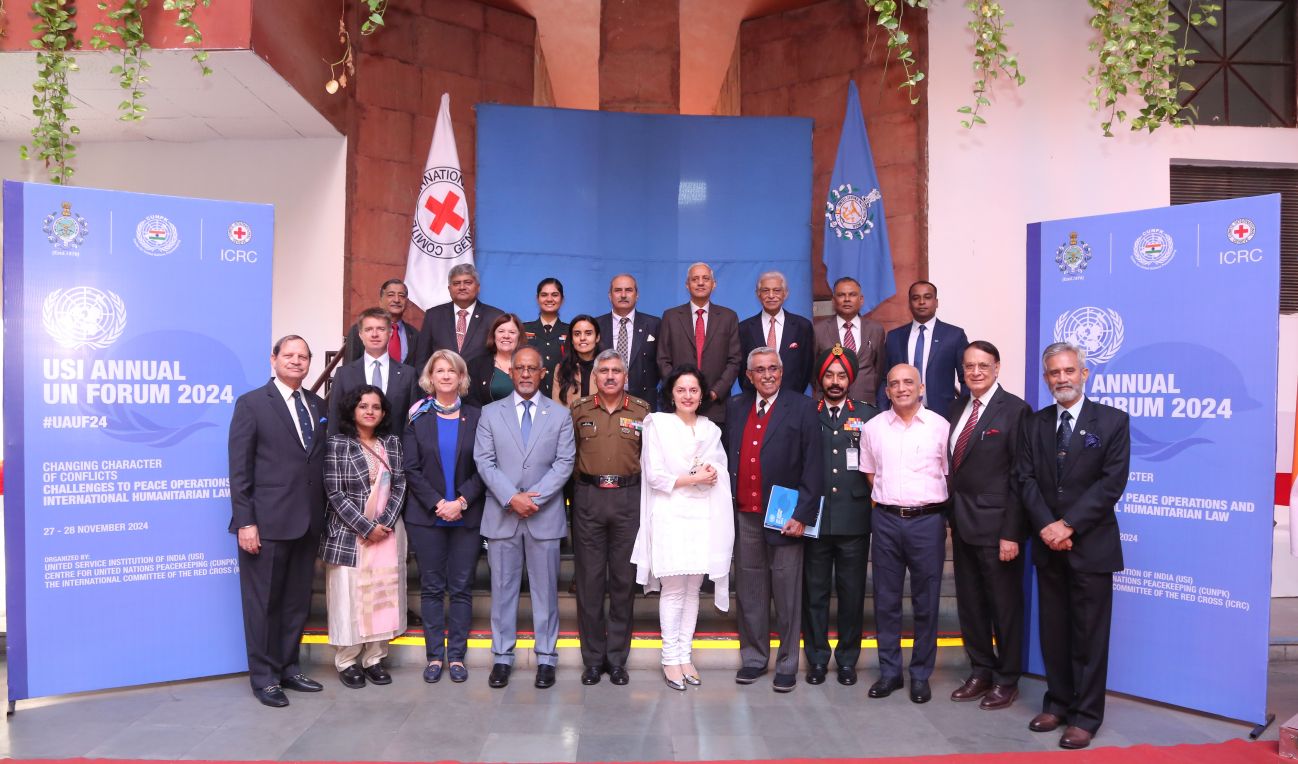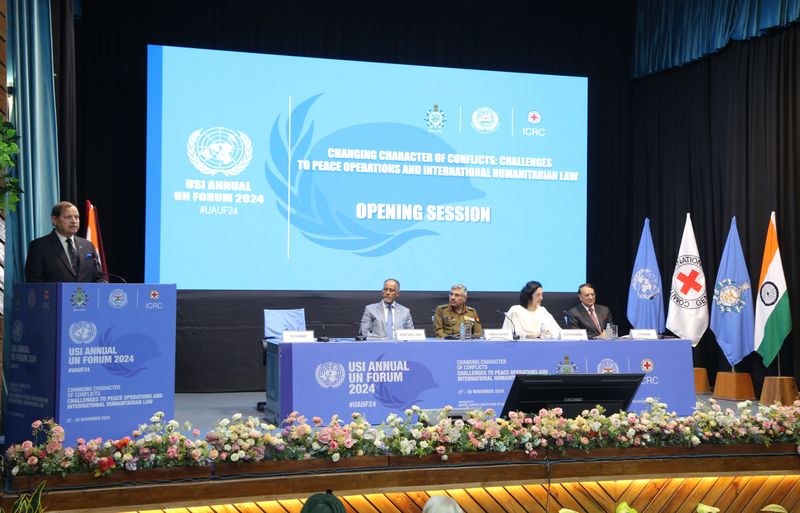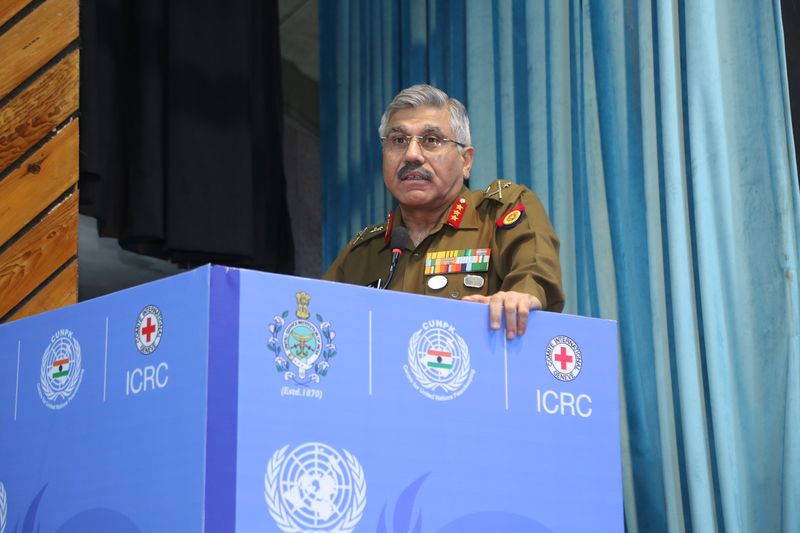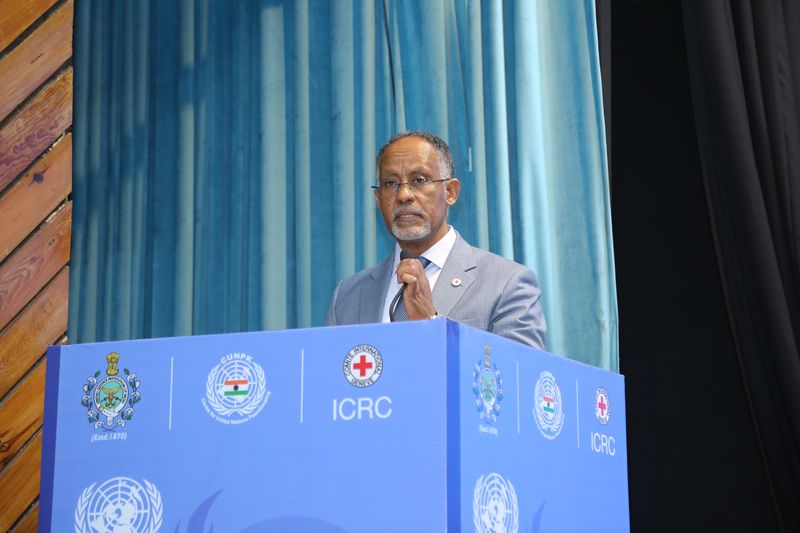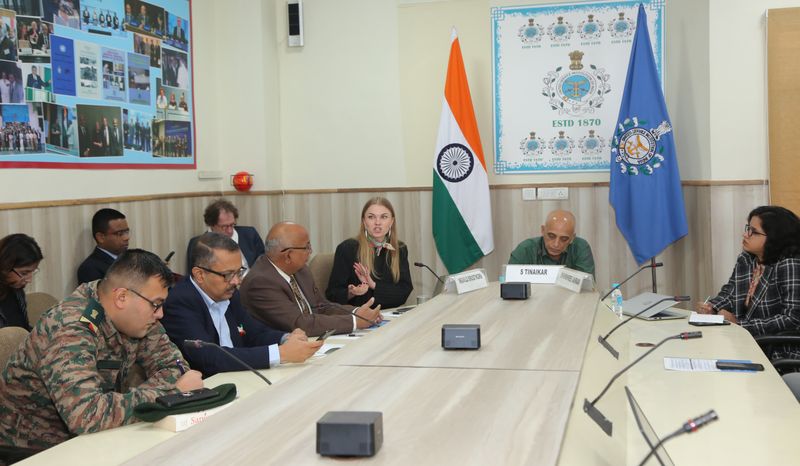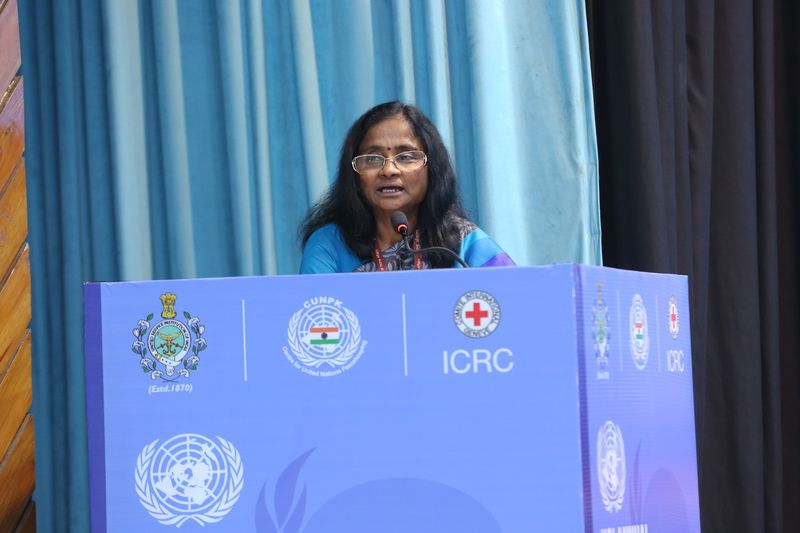The United Service Institution of India (USI) hosted the Annual UN Forum 2024 in New Delhi on November 27-28 in collaboration with the International Committee of the Red Cross (ICRC) and the Centre for UN Peacekeeping Operations (CUNPK). The forum discussions focused on “Changing Character of Conflicts: Challenges to Peace Operations and International Humanitarian Law.”
This event focused on providing an overview of some of the challenges contemporary armed conflicts pose to international humanitarian law, generating a broader discussion of those challenges.Maj Gen PK Goswami, Deputy Director General, USI, welcomed the participants and audience and Maj Gen BK Sharma, DG, USI, delivered the opening address.
Lt Gen Rakesh Kapoor, AVSM, VSM, DCOAS (IS & C), Indian Army then delivered a keynote address. Following this, Ms Ruchira Kamboj, India’s former Ambassador and permanent representative to the UN, delivered a special address.
Finally, Mr Kedir Awol Omar, Head of the Regional Delegation for India, Nepal, Bhutan, and the Maldives, addressed the audience on behalf of the ICRC.
The application of International Humanitarian Law (IHL) has become increasingly important as UN peacekeeping missions operate in volatile environments marked by asymmetric warfare. In addition to emphasizing the need to uphold IHL principles, the forum provided a timely platform to address the evolving challenges of modern conflicts.Through a series of thematic sessions spanning two days, the forum fostered in-depth dialogue on critical issues. Discussions began with an analysis of the Changing Character of Armed Conflicts, focusing on the impact of technology, environmental crises, and evolving conflict trends on peace operations. The forum then delved into Challenges to Peace Operations and IHL, exploring future peacekeeping challenges, and the intersection of IHL and peace operations.
Specialized breakout sessions examined key areas such as the Protection of Civilians and Peacekeepers, the influence of Climate Change on Peace Operations, and the indispensable contributions of Women in Peacekeeping toward lasting peace. The final session assessed the Future of UN Peace Operations, highlighting emerging models, people-centric approaches, and strategies to align peacekeeping with the New Agenda for Peace.
This comprehensive discourse brought together diverse perspectives, offering actionable insights to strengthen peace operations and reinforce IHL’s role in addressing contemporary and future challenges.
Distinguished experts in international relations chaired panels featuring senior officials from the Indian Armed Forces, Academia, and the Ministry of External Affairs. Through engaging presentations, they highlighted the relevance of IHL in regulating armed conflicts, its role in UN peacekeeping, and challenges such as urban warfare and the influence of non-state actors. Over two days, discussions delved into the legal implications of IHL for military operations and emphasized the need to address emerging challenges to ensure respect for IHL.
As the event came to a close, Ms Uma Sekhar, Additional secretary (Legal & Treaties division), MEA delivered Valedictory Address followed by Closing Remarks by Lt Gen Satish Nambiar (Retd), Former Force Commander and Head of Mission United Nations Protection Force (UNPROFOR).
In the end Cdr Sandeep Bali (Retd), Head of Prevention, ICRC Regional Delegation presented the vote of thanks.
The symposium served to enhance awareness and respect for IHL, and humanitarian challenges. It also underscored the multifaceted nature of peacekeeping, advocating a comprehensive approach that incorporates legal, humanitarian, gender-sensitive, and technological considerations to protect civilians and those covered under IHL. Insights and recommendations provided a valuable framework for enhancing peacekeeping in today’s volatile and complex conflicts. The contributions of distinguished chairs and speakers enriched the event, shaping future discussions on humanitarian action in contemporary global scenarios.


